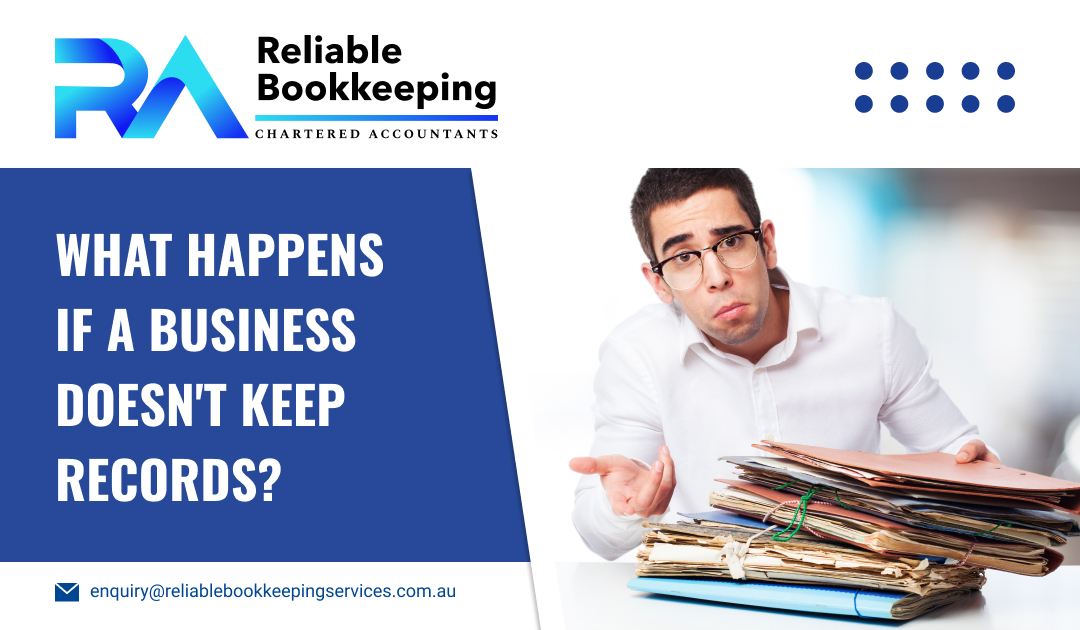You must record and maintain every financial transaction of your business, which can be related to your superannuation, tax, and registration matters, as you start, run, and sell your business. To meet your record-keeping needs and avoid common mistakes, ensure you understand what records are required for your company and complete record-keeping practices. When your business starts to grow, you may have to review what type of records you must keep and maintain. By engaging a Melbourne bookkeeper for your Melbourne-located business, you can be sure to have accurate and complete business records.
What is considered a record?
A record includes super and tax-related transactions, which are conducted by your business. Your business records must have the right information for the ATO to check out the essential features or the reasons for the transactions, so they can understand the relevance of the transactions to your business’s expenses and income. The minimum information that must be included in the record is:
- Amount, date, and description (for instance, purchase, sale, rental, and wages) and goods and services tax (GST) information for the financial transaction.
- Reason for each financial transaction.
- Connection between parties to the transactions, if appropriate.
What happens if a business does not retain required records?
If you don’t keep accurate records of financial transactions that take place in a company, you could face a wide range of serious issues:
- ATO penalties and audits: You may have to pay penalties that may apply when you don’t keep or maintain your financial records as needed. The ATO consider your circumstances, behaviour, and compliance history if they need to make a penalty decision. That’s why many businesses get help from the best accountant Melbourne to deal with tax audits to avoid penalties, while collaborating with bookkeepers to record and maintain accurate financial transactions.
- Disputes: Without proper records and documentation, it will be difficult to protect your business in disputes with employees, customers, or business partners.
If you are not sure what’s required, you can get in touch with reliable bookkeepers and accountants, who can set up the right systems from day one to help you avoid penalties or fines.
Record-keeping practices to follow
As a business owner, you need to follow these record-keeping rules:
- You must keep all records related to starting, changing, closing or selling your business that are related to your super and tax affairs.
- The information in your records must not be manipulated and must be stored in a way that keeps information protected from being changed or damaged.
- The records must be kept for 5 years.
- You must be able to show the records to the ATO when they ask for them.
- Your records should be in English or need to be converted to English.
How to stay on top of business record-keeping?
- Determine your business structure: Your needs may differ for partnerships, sole traders, and companies, especially around financial reporting and corporate registers.
- Set up the right bookkeeping system: Choosing the right bookkeeping system is essential to ensure accuracy in a business’s financial records.
- Know your business requirements: Some industries might have additional requirements regarding privacy practices, client records, and compliance. So, make sure you know your business’s requirements to avoid any legal issues.
- Keep records for a longer time period when required: Employee files, asset purchase records, company documentation, and major contracts may need to be kept for more than five years. If you have any doubt, keep these records for at least seven years.
- Reconcile bank accounts: To avoid discrepancies, it’s essential to prepare a bank reconciliation statement. Many of you may not be familiar with the process of reconciliation, so it’s suggested to get help from a reliable bookkeeper.
- Get expert assistance: If you are unsure about record requirements for your business, it’s advisable to seek professional help. Especially for disputes, major financial transactions, or organisational changes, it’s crucial to have an expert’s advice.
Conclusion
Your business must have accurate records to avoid penalties or fines from the ATO. To ensure consistency in business records, it’s advisable to get reliable bookkeeping services for your business.

